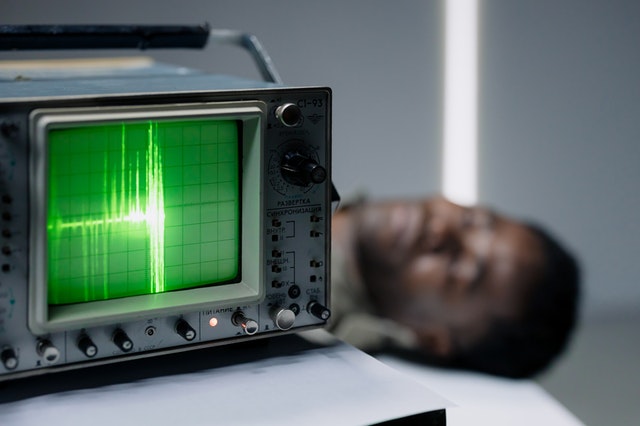Although a nurse’s duties and responsibilities are the same whether they work during the day or at night, the night shift (or shift work) presents distinct challenges. The night shift demands a nurse to make substantial changes to his or her daily routine and personal life due to the work environment and schedule. Nurses must also develop ways to handle what is considered a less busy (or less stressful) task in between the constant monitoring of patients throughout the night, with the bulk of patients sleeping during the late shift.
The normal night shift is between 11:00 p.m. and 7:00 a.m., however, times vary depending on the healthcare facility or hospital. A shift for certain nurses may begin as early as 8:00 p.m. Nurses generally come home after a night shift to relax and recharge in the early hours of the morning. Unfortunately, napping during the day isn’t always easy to come by. Once awake, a night nurse usually attends to their personal life before continuing on to their next shift.
When working the night shift, one thing to keep in mind is that your body may take some time to adjust to the new schedule. One of the most difficult challenges a night shift nurse faces is learning to adjust to a different sleep schedule – especially when their sleeping pattern is the polar opposite of the bulk of the population, including their family and friends.
The importance of night shift nursing is discussed here, along with nine survival recommendations for nurses who work the night shift:
Are night shifts a necessary part of healthcare?
Few positions in healthcare are as misunderstood as night shift nurses, whose invaluable contributions to patients’ well-being and the performance of nursing teams are routinely undervalued. Because night shift nurses are caring for patients while the rest of the world sleeps, it’s logical that their work goes unnoticed. Few nurses, however, confront more difficulties and make greater sacrifices for their profession than those who work the night shift.
Night shifts are an unavoidable aspect of the healthcare industry. Even if activity in a hospital or inpatient facility decreases at night, nursing care is available 24 hours a day. Frequently, new employees will start on the night shift and stay there until a position on the day shift becomes available. Some facilities need employees to work rotating shifts or to be scheduled to cover for night staff vacations.
The most prevalent misperception regarding night shift nurses is that everything is calm at night. Night shifts are actually almost as busy as day shifts. People don’t stop being sick just because it’s midnight. Of course, nurses on the day shift have massive workloads, so they sometimes delegate “less desired” jobs to the night shift.
One of the ways the shift is tougher than day and afternoon (swing) shifts is dealing with exhausted patients trying to sleep in an unfamiliar bed. Another drawback for night shift nurses is that they may not have access to resources like a full-service cafeteria or other support services.
Read more: Tips to Nailing Patient Charting

Adapting to the night shift
One of the most difficult tasks for a CNA is adapting to the night shift. Many of the tasks are the same as they are during the day shift, but fatigue can make them seem more difficult. When it’s dark, our brains urge us to calm down and sleep. It secretes hormones that regulate our internal “clocks” and keep us awake during the day. Both the brain and the body are confused when you stay up all night.
Working during the night and resting throughout the day has physical and emotional consequences, which are worsened by many night nurses’ feelings of exclusion from work and social activities. This is only one of the difficulties that night shift nurses face that their colleagues on other shifts do not have to deal with.
The consequences of chronic sleep deprivation are the greatest threat to the health of night shift nurses. Nurses who worked the night shift slept one to four hours less each week, according to research published in Scrubs Magazine. A doubling of the risk of being in a car accident after obtaining less than six hours of sleep in the previous 24 hours and a quadrupling of the risk after receiving less than five hours of sleep are among the dangers associated with sleep deprivation.
The following are some of the health hazards that nurses who work the night shift face:
- Workers who work the night shift have a 42 percent increased risk of developing type 2 diabetes. Occupational and Environmental Medicine (OEM) is a specialty of occupational and environmental medicine.
- Women who work more than five years of rotating night shifts have an 11% higher mortality rate from all causes, and a 19% higher mortality rate from cardiovascular disease. (Journal of Preventive Medicine, American)
- The liver, pancreas, kidneys, and digestive system all have metabolite rhythms that are disrupted by night shift employment, which may be connected to an increased prevalence of gastrointestinal problems and severe metabolic diseases among night shift workers. (National Academy of Sciences Proceedings)
The following are some of the health hazards that nurses who work the night shift face:
- Workers who work the night shift have a 42 percent increased risk of developing type 2 diabetes. Occupational and Environmental Medicine (OEM) is a specialty of occupational and environmental medicine.
- Women who work more than five years of rotating night shifts have an 11% higher mortality rate from all causes, and a 19% higher mortality rate from cardiovascular disease. (Journal of Preventive Medicine, American)
- The liver, pancreas, kidneys, and digestive system all have metabolite rhythms that are disrupted by night shift work, which may be related to an increased prevalence of gastrointestinal problems and severe metabolic diseases among night shift workers. (National Academy of Sciences Proceedings)
Tips for night shift nursing
9 Night Staffing Tips from the Professionals:
Maintain a consistent sleep schedule
While you may occasionally need to disrupt your sleep for an important task, maintaining a consistent sleep schedule is the ideal option. Follow that routine, whether you like to go straight to bed when you come home or stay awake for a bit.
During the day, act as though it’s night
Use room-darkening shades or drapes to make your bedroom as dark as possible. Wear a sleep mask to prevent your eyes from sensing light; the brain generates melatonin, the sleep hormone, when it senses darkness. Daytime sounds can be blocked using earplugs. A white noise machine or phone app, which suppresses sounds with soft moving air, is also useful.
Caffeine should be used with caution
Caffeine (coffee, tea, and energy drinks) might give you a boost at the start of your shift and entice you to keep drinking it all night long. But stop it at least four hours before your shift ends so you’re tired when you go home.
Before going to work, have a healthy “breakfast.”
You need fuel to get through the day…or in this case, the night, just as your mother told you. Before and throughout the shift, stay away from sweets and processed meals. Snacks should include protein, nuts, fruits, and veggies. Your blood sugar will remain steady if you eat little meals every several hours. Also, remember to remain hydrated.
It’s crucial to have good lighting
During the shift, you’ll need a source of light to “fool” the brain. The lights at most facilities are dimmed at night so that patients and residents may sleep. At the nurse station and in the break room, try to keep the lights turned up. However, you should wear sunglasses on your walk home to minimize direct sunlight, which might excite your brain.
Keep yourself busy all night
You may wonder how to stay awake on night shift. The answer is keeping yourself busy all night. The night shift has always had several tasks that complement the busier day shift. Some of the responsibilities include folding linens, stocking supplies, cleaning workspaces, wiping wheelchairs, and aiding the early risers. Bringing something to do on dull nights is a smart idea. A book or magazine, Sudoku puzzles, or basic knitting are all hobbies that may be swiftly set aside to assist a person.
Get to know your co-workers
When you’re interacting with others, time seems to fly by. When you have fewer resources than during the day, you’ll have to get creative when a new bug arises. You’ll also get the opportunity to get to know one another; during the night shift, lifetime friendships are formed.
Create a support group
Working nights may be exhausting for you, your family, and your friends. When you’re on the other side of the clock from everyone else, it takes a while for them to realize that just because you’re “at home” during the day doesn’t mean you’re available. You require rest. Remind them that they should only call in an emergency. Set up certain periods for conversation. Post updates on bulletin boards and notes. On your days off, schedule family time and “date nights.”
If nothing else works, see a doctor
Alcohol should not be used for sleep; it may appear to help you sleep, but as it metabolizes, it might actually keep you awake. Melatonin supplements or over-the-counter sleep aids, both of which may be found at drug shops and pharmacies, can be beneficial. If you find yourself needing to take anything on a regular basis, it’s time to get assistance. Make an appointment with your primary care physician before using sleeping medications. He or she can assess your general health, as well as any potential sleepiness like sleep apnea or restless leg syndrome.
Are there any benefits to staying on the night shift?
Some people find that they enjoy it a lot. Those who prefer to work that schedule enjoy it for the following reasons:
- Differential shift. Day shift vs night shift offers you a different salary. You can see a big increase in your salary with additional hourly pay for nights (and sometimes more for weekend nights). What time is third shift? That’s the time you get a high hourly wage.
- Patients and residents will receive better care. You can give care that meets the requirements of your patients when you’re not bound by a schedule that includes meals, therapy, physicians, and visitors. You’re more likely to have time if they want to talk.
- The environment is calm and peaceful. There are fewer visitors and most residents are asleep. You’ll be keeping an eye on residents and aiding them, but without the commotion and distractions of the day.
- Good team spirit. Because staffing levels are frequently lower on nights, you and your coworkers must rely on one another to get things done. You’ll have more time to talk and learn about each other because things are less busy. After their shift, a lot of coworkers come together for breakfast.
- More time with the family. Everything happens during the day, let’s face it. It’s easy to arrange school activities, medical appointments, and hairstylists. You must use caution to avoid overdoing things, but you are capable of doing so.
Over 15 million people in the United States work night shifts or have occupations that require them to work nights.
Night shift nurses may attain peak performance on the job and fulfill their professional objectives while keeping strong connections with their family, friends, and community by using the tools and suggestions provided here.
It’s critical to obtain enough sleep in order to stay awake, react quickly, and arrive home safely. You can prevent certain significant effects of chronic sleep deprivation, such as high blood pressure, heart illness, and depression, by arranging for enough rest after every night shift. After some time, you’ll figure out which approaches work best for you, and you’ll be happy to share your tips with new night shift nursing CNAs!
Visit our websites to get more information and free CNA practice exam. To download, visit our website for your IOS or Android device.

Top Registered Nurse Interview Tips
Remember some important registered nurse interview tips in our post is an excellent way to ensure that you are well-prepared for the interview.
January 1, 2022

Everything That You Should Know About The CNA Online Test
Lots of students have wondered about the CNA online test as well as what should be remembered when taking it. Let’s get started!
January 1, 2022

All You Need To Know About Checking The Apical Pulse
What is the apical pulse which is the method to check it? Here we will help you with the following beneficial information. Let’s get started!
January 1, 2022

